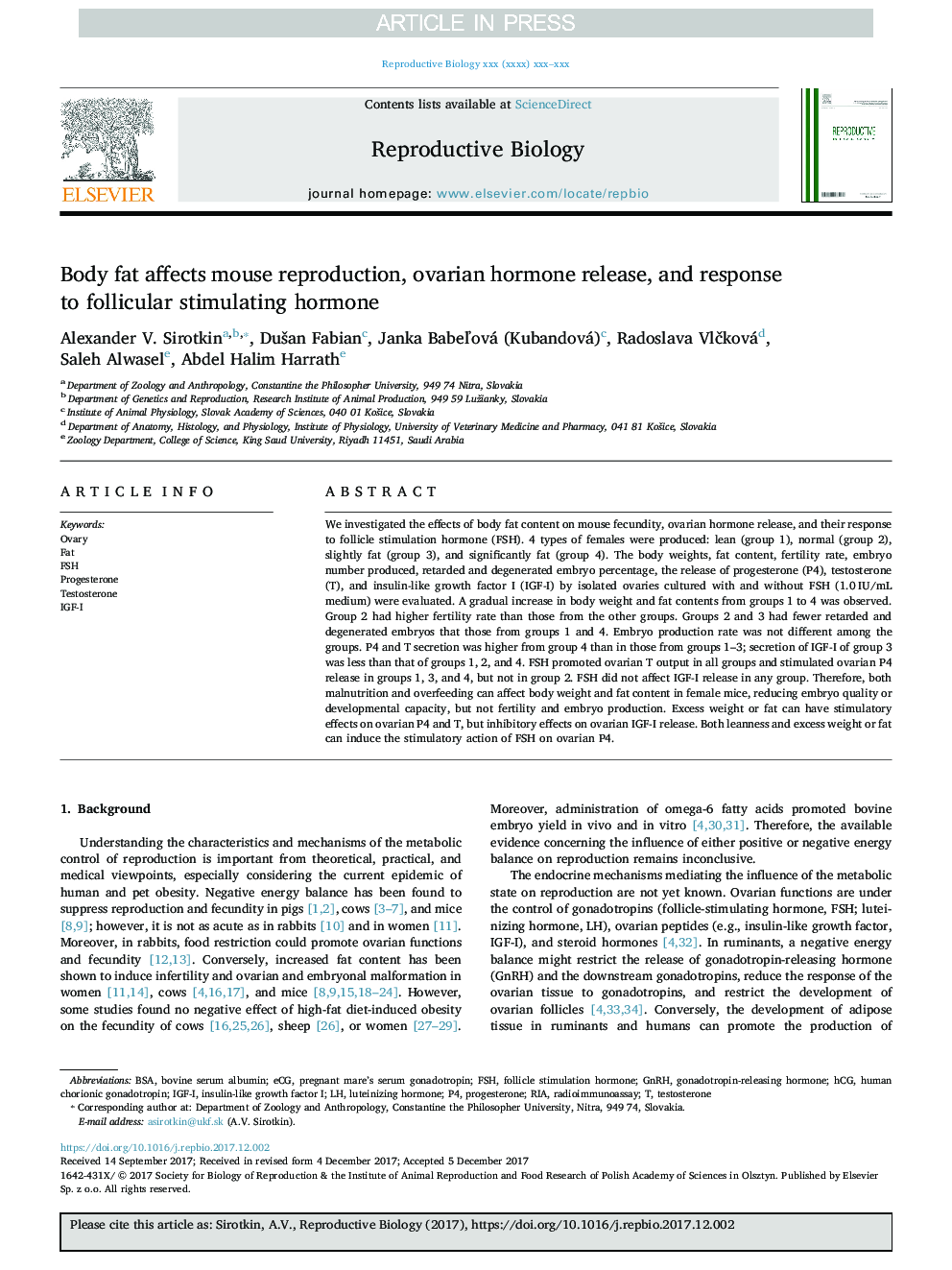| Article ID | Journal | Published Year | Pages | File Type |
|---|---|---|---|---|
| 8393026 | Reproductive Biology | 2018 | 7 Pages |
Abstract
We investigated the effects of body fat content on mouse fecundity, ovarian hormone release, and their response to follicle stimulation hormone (FSH). 4 types of females were produced: lean (group 1), normal (group 2), slightly fat (group 3), and significantly fat (group 4). The body weights, fat content, fertility rate, embryo number produced, retarded and degenerated embryo percentage, the release of progesterone (P4), testosterone (T), and insulin-like growth factor I (IGF-I) by isolated ovaries cultured with and without FSH (1.0Â IU/mL medium) were evaluated. A gradual increase in body weight and fat contents from groups 1 to 4 was observed. Group 2 had higher fertility rate than those from the other groups. Groups 2 and 3 had fewer retarded and degenerated embryos that those from groups 1 and 4. Embryo production rate was not different among the groups. P4 and T secretion was higher from group 4 than in those from groups 1-3; secretion of IGF-I of group 3 was less than that of groups 1, 2, and 4. FSH promoted ovarian T output in all groups and stimulated ovarian P4 release in groups 1, 3, and 4, but not in group 2. FSH did not affect IGF-I release in any group. Therefore, both malnutrition and overfeeding can affect body weight and fat content in female mice, reducing embryo quality or developmental capacity, but not fertility and embryo production. Excess weight or fat can have stimulatory effects on ovarian P4 and T, but inhibitory effects on ovarian IGF-I release. Both leanness and excess weight or fat can induce the stimulatory action of FSH on ovarian P4.
Keywords
Related Topics
Life Sciences
Agricultural and Biological Sciences
Animal Science and Zoology
Authors
Alexander V. Sirotkin, DuÅ¡an Fabian, Janka Babeľová (Kubandová), Radoslava VlÄková, Saleh Alwasel, Abdel Halim Harrath,
